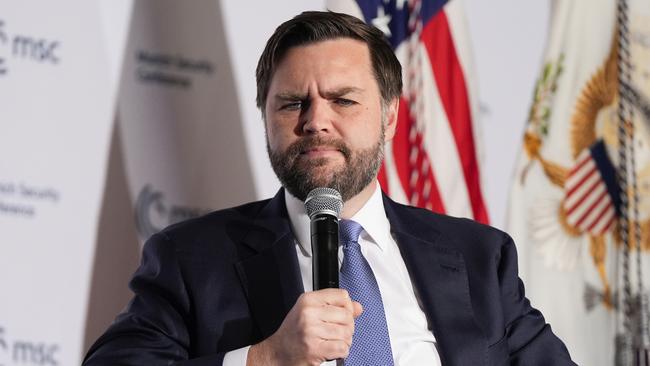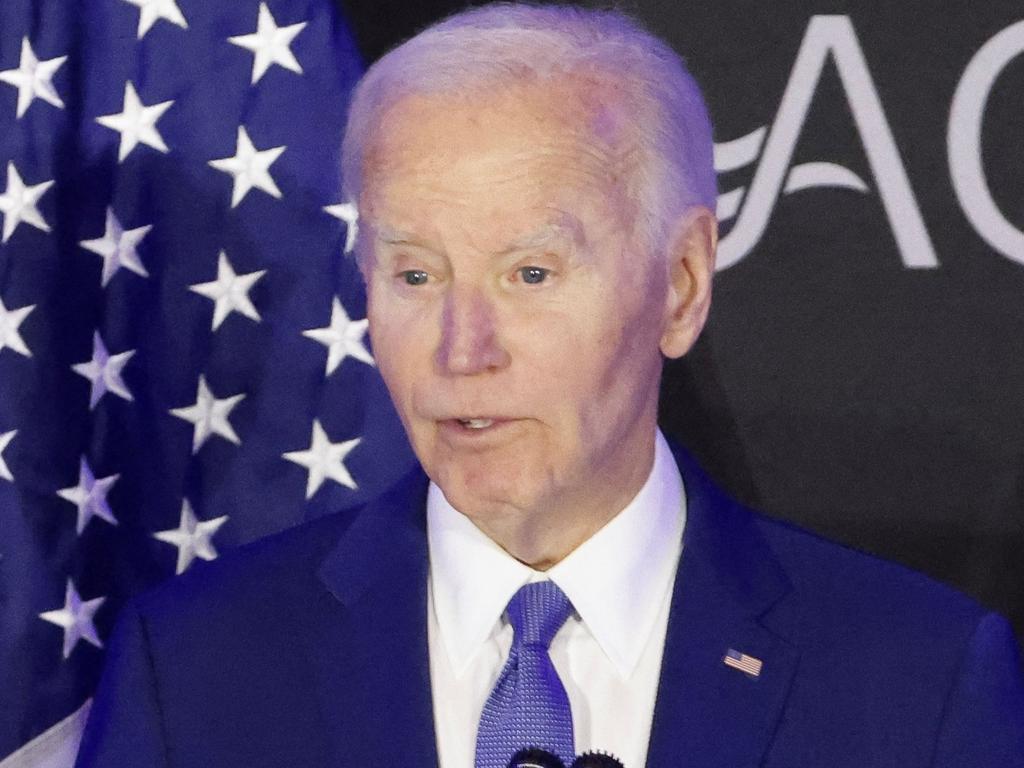JD Vance insists US, Europe are still on the ‘same team’
The US Vice President renewed the case for a more equal transatlantic alliance, as he defended Donald Trump’s engagement of Russia to end the war in Ukraine.

US Vice-President JD Vance says Europe and America are still members of the “same team” but renewed the case for a more equal transatlantic alliance, as he defended Donald Trump’s engagement of Russia to end the war in Ukraine.
Mr Vance also confirmed that no conversations had taken place between Washington and Beijing on a strategic deal over Taiwan, making clear the US push to rebalance global trade was directed at countering Beijing’s rising economic influence.
He clarified the objective of talks with Tehran was to reintegrate Iran into the global economy in return for the Islamic theocracy relinquishing any aspirations to obtain a nuclear weapon and thus ensuring greater stability in the Middle East.
“We really think that if the Iran domino falls you’re going to see nuclear proliferation all over the Middle East. That’s very bad for us. It’s very bad for our friends,” he said.
In remarks to the Munich Security Conference in Washington on Wednesday, Mr Vance said that he believed “European civilisation and American civilisation, European culture and American culture are very much linked.”
The comments served as a footnote to his controversial speech to the Munich Security Conference in February when he warned the biggest risk to security on the continent came not from China or Russia, but from Europe itself.
Yet he said on Wednesday this criticism “applied as much to the previous American administration as it did any government in Europe.”
“There is a trade-off between policing the bounds of democratic speech and debate and losing the trust of our people,” he said. “We’re all going to draw the lines a little bit differently.”
“We have to be careful that we don’t draw the lines in such a way that we actually undermine the very democratic legitimacy upon which all of our civilisation rests.
“And I think that’s fundamentally the point here. It’s not Europe bad, America good. It’s that I think that both Europe and the United States, we got a little bit off track. And I’d encourage us all to get back on track together.”
Mr Vance said he thought it was “ridiculous to think that you’re ever going to be able to drive a firm wedge between the United States and Europe.”
“That doesn’t mean we’re not going to have disagreements … But I do think fundamentally that we have to be, and we are, on the same civilisational team.”
Mr Vance said Europe needed to lift its game on burden sharing when it came to defence, arguing that both sides of the Atlantic had become too comfortable with the security posture of the last twenty years.
“Europe does have to play a bigger role in continental defence,” he said.
Current defence arrangements were inadequate to properly meet the strategic challenges of the next twenty years, with Mr Vance arguing that the transatlantic alliance would need to “evolve and change.”
“I do think that we are in one of these phases where we are going to have to rethink a lot of big questions, but I do think that we should rethink those big questions together,” he said.
On the war in Ukraine, Mr Vance said the US President had been unfairly criticised for embracing “strategic realism.” He argued it was imperative to understand what Moscow wanted in order to bring the conflict to a close.
“You don’t have to agree with the Russian justification for the war,” he said. “But you have to try and understand where the other side is coming from to end the conflict. And I think that’s what President Trump has been very deliberate about.”
Mr Vance said Mr Trump would not hesitate to “walk away” if no progress was being made, and called for direct talks between Russia and Ukraine. Washington’s objective was for Kyiv and Moscow to agree on basic guidelines for sitting down and talking to each other. But he warned there was still a big “gulf” between what the Ukrainians and Russians wanted.
“We think it’s probably impossible for us to mediate this entirely without at least some direct negotiation between the two. And so that’s what we focus on,“ he said.
On China, Mr Vance said America had grown frustrated because it could no longer “absorb the producer surplus of the entire world.”
“That has been the role of the American economy for the past thirty years,” he said. “Now we find ourselves in a very precarious place. And when I say we – I mean the entire West.”
“We find ourselves more and more reliant on countries that may not have our best interests at heart … It’s still a little bit risky to put all of your eggs in one proverbial basket economically.”
“What the President has said is that we must rebalance the global economy vis-a-vis China … We are in the early innings of a very significant shift,” he said.
He wanted the world to be more open to taking goods from US exporters, by dropping tariff and non tariff barriers.






To join the conversation, please log in. Don't have an account? Register
Join the conversation, you are commenting as Logout